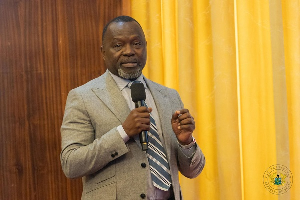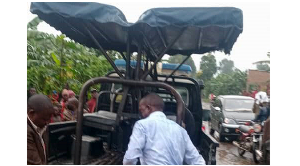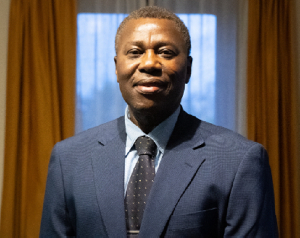Artisanal and small-scale mining (ASM) is largely an informal sector with limited access to information on responsible mining practices and sustainable production.
Most small-scale mining operations in Ghana are in remote areas which makes deployment of interventions to improve the sector very challenging. This is because existing intervention models are often reliant on face-to-face contacts.
Although many interventions have been implemented to help these mines, there are never enough resources to reach every miner. Existing interventions are also mostly in English and exclude a large segment of the mining population, who do not speak English.
To close this gap, Solidaridad, through its gold programme, which seeks to promote responsible and sustainable small-scale mining in Ghana, has developed an Interactive Voice Response (IVR) platform to educate artisanal and small-scale gold miners on responsible mining practices.
The IVR platform is compatible with basic feature and android phones and allows the target audience to receive pre-recorded messages in real-time without the need for face-to-face contact.
How the IVR works
Miners receive phone calls to assist them to do an evaluation of their practices in a local dialect – twi – which is spoken in many of the beneficiary communities.
They also receive practical guidelines on responsible mining practices, such as safe working conditions, responsible use of mercury and environmental management. All the guidelines are in line with the Fairmined Standard, which is a set of requirements for artisanal and small-scale mining to perform responsible mining.
They also meet the Code of Risk mitigation for Artisanal and small-scale miners engaging in Formal Trade (CRAFT Code), which helps miners to assess critical social and environmental risks—such as child labour, illicit trade, and uncontrolled use of chemicals and develop action plans to address them.
So far, Solidaridad’s gold programme has used the IVR platform to engage over 1,000 miners in Ghana.
“The target is to use the platform to educate over 200,000 miners in Ghana, Tanzania and Cote d’Ivoire by 2023 to adopt best mining practices to improve on health, safety, environmental and business practices of small-scale miners,” says Yaw Britwum Opoku, Gold Programme Manager at Solidaridad.
He says the platform is also aimed at up scaling the activities of the gold programme to reach a lot of miners nationwide and in some parts of Africa.
“The IVR platform has helped in improving our work as miners. Through the messages we receive, we have been able to put in place stringent safety measures to protect our workers,” says Philip Baidoo, health and safety manager, Beava Mining Enterprise, Nkatieso.
Aside from using the IVR platform to educate miners on responsible mining practices, Solidaridad has also used it to sensitize miners on the COVID-19 pandemic.
Other digital tools for sustainability
A gold digital suite of which the IVR platform is a component has been developed by Solidaridad to generate tailored work plans that miners can follow at their own pace to improve on their efforts to mine responsibly and also provide information to regulatory bodies on mines’ compliance to set standards.
The other components of the digital suite are an android-based application to help mine managers track responsible mining practices at their mining sites and a web dashboard for key stakeholders, such as the Environmental Protection Agency and the Minerals Commission to track the activities of small-scale mines nationwide.
These digital tools would help Solidaridad engage its beneficiaries at each level. By this, Solidaridad can create pathways for mines to understand best practices and how to adopt them.
Solidaridad’s gold programme focuses on improving the livelihoods of artisanal and small-scale miners to promote social impacts, inclusive business, and safety practices through the adoption of international best practices.
Business News of Wednesday, 1 July 2020
Source: Solidaridad













